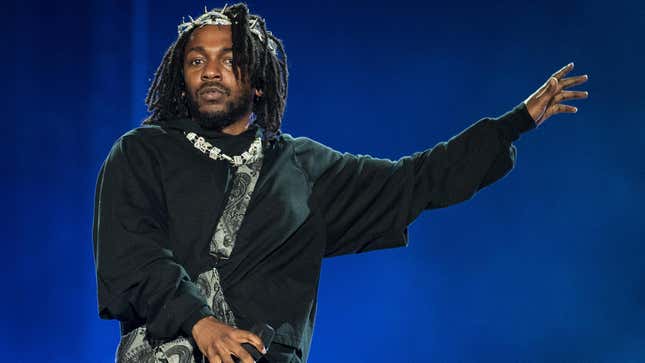
History’s best rappers force listeners to peel back the layers of their bars to find meaning lingering beneath the surface. In that, Kendrick Lamar can teach a master class: He’s known for making albums with nonlinear storylines and deep cut references.
“euphoria,” his dense, six-plus-minute assault on Drake, is no exception.
Here are some of the gems from the song that you may have missed on your first few listens.
“Everything they say about me is true”
Two standout gems from the track are present before Kendrick utters a word. The song is titled “euphoria,” and the track is a euphoric (or elated, as shown in the song’s dictionary definition artwork) experience for Kendrick. But it’s also the title of the hit HBO show produced by Drake, which has been criticized for its sexualization of teenagers. Drake has also been criticized for his proximity to teenage girls in his personal life.
The song intro’s reversed audio clip is from Richard Pryor’s portrayal of the titular character in “The Wiz,” — the 1978 remake of the classic “The Wizard of Oz,” in which he admits he’s a “phony.”
“Hellcat, made his homeboys and them type sell they soul, okay / Everybody wanna be demon ‘til they get chipped by your throwaway”
On “Taylor Made Freestyle,” Drake told Drake that he “better have a mother***ing quintuple entendre” in his response. K. Dot obliged, with these lines that revolve around the word “demon.” On “Push Ups,” Drake warned “don’t wake the demon up.” The genesis of their beef appears to be Kendrick’s renowned “throwaway” verse on Big Sean’s B-side “Control.”
Future also has a song called “Throw Away;” his real name is Nayvadius DeMun Cash, and he and Drake are rumored to be feuding over a woman. Translation: Drake was talking trash until his ego was bruised by Kendrick’s lyrics, and he rolled with frequent collaborator Future until they slept with the same girl.
“The very first time I shot me a Drac’, the homie had told me to aim it this way / I didn’t point down enough, today, I’ll show you I learned from those mistakes”
Drake is Kendrick’s opponent, and a Draco is a semi-automatic pistol. While referring to the gun, Kendrick is saying that he misfired after aiming it incorrectly but has since learned how to use it. He also appears to be saying that after years of trading subliminal disses, he’s finally aiming directly at him and shooting to kill.
“It’s three G.O.A.T.s left, and I seen two of them kissin’ and huggin’ on stage / I love ‘em to death, and in eight bars, I’ll explain that phrase … Cole and Aubrey know I’m a selfish nigga / The crown is heavy / I pray they my real friends, if not, I’m YNW Melly”
Kendrick refers to himself, J. Cole, and Drake (neé Aubrey Graham) as “three G.O.A.T.s” in this line, but on “Like That” he famously claimed “f**k the big three; it’s big me.” He says here that he “loves them to death,” but precisely eight lines later, he reveals a flip on the colloquialism: YNW Melly, the rapper behind the song “Murder On My Mind,” is on trial for killing his two friends in a double homicide case. Kendrick’s message is clear: he’s willing to lyrically eviscerate his fellow two MCs if necessary.
“Am I battlin’ ghosts or AI? N***a feelin’ like Joel Osteen / Funny, he was in a film called “AI” / And my sixth sense tellin’ me to off him”
Here, Kendrick Lamar teases Drake for his use of anything besides his own lyrics and voice. He asks if he’s battling “ghosts,” a reference to Drake’s alleged ghostwriters, or “A.I.,” since Drake used artificial intelligence voice filters to imitate 2Pac and Snoop Dogg. After that, he appears to be referring not to the televangelist pastor Joel Osteen, but the similarly named child actor Haley Joel Osment, who acted in the films “AI” and “The Sixth Sense.”

